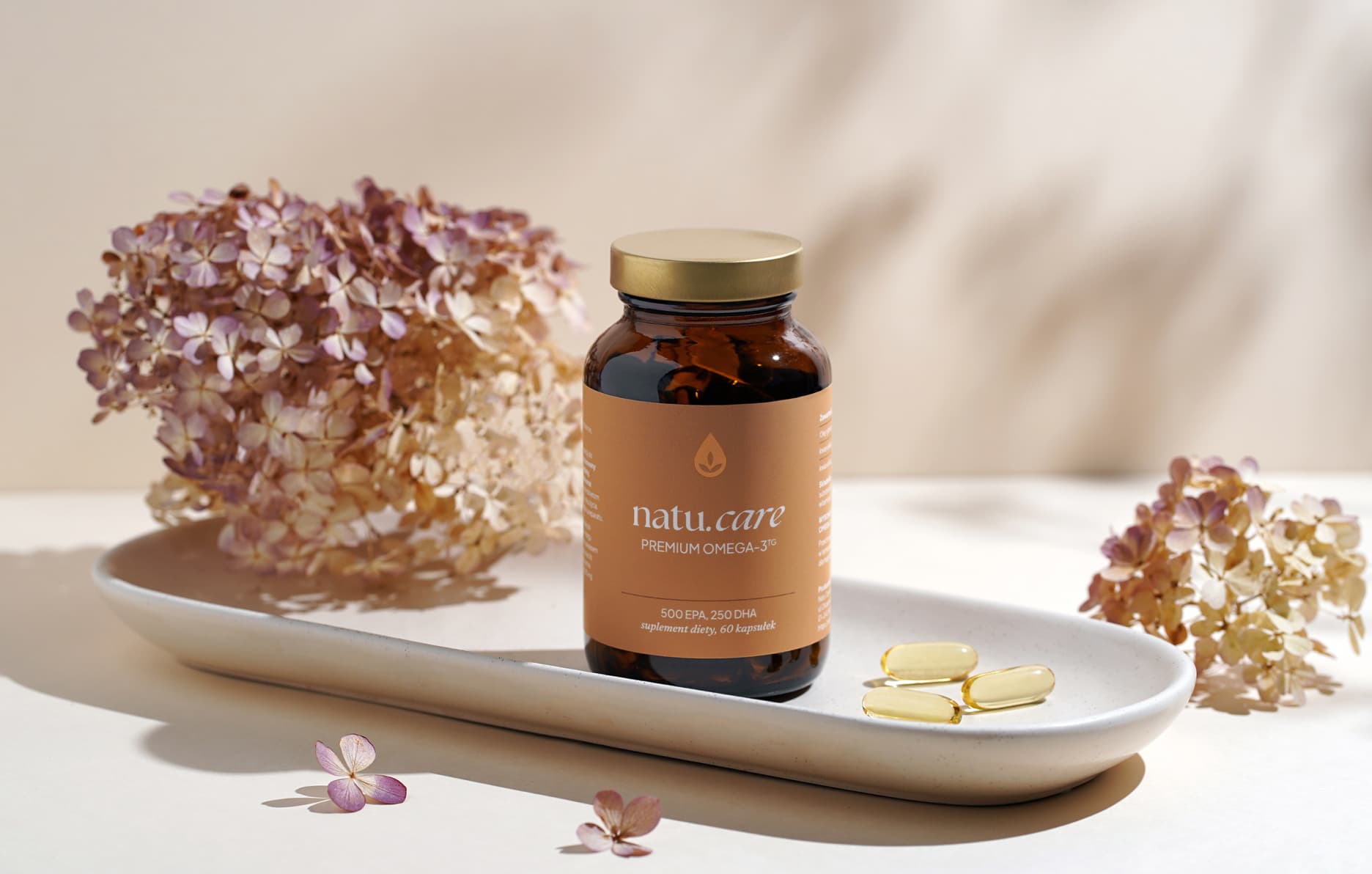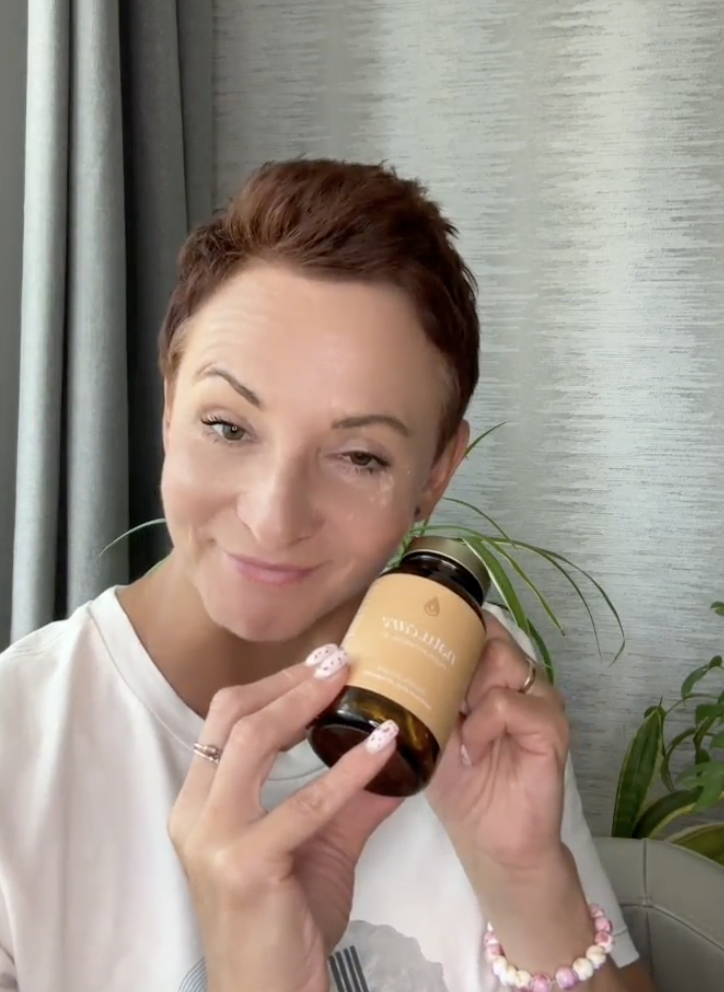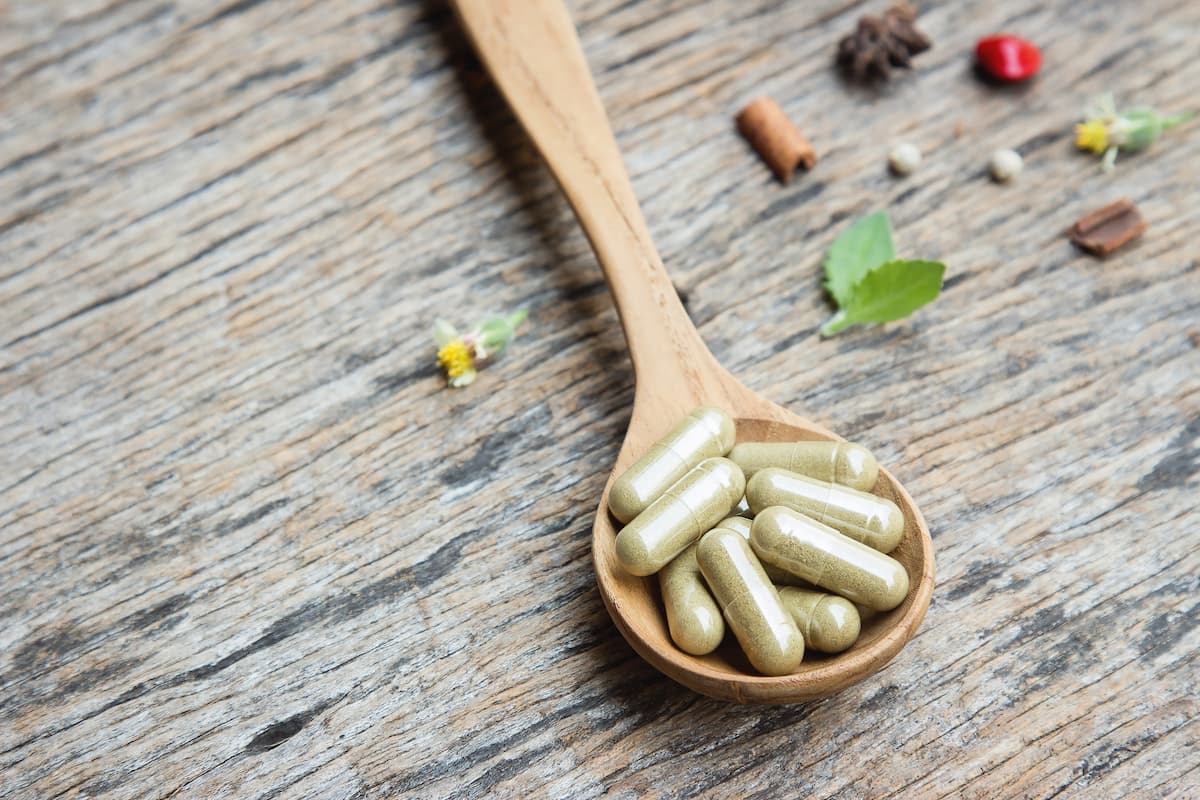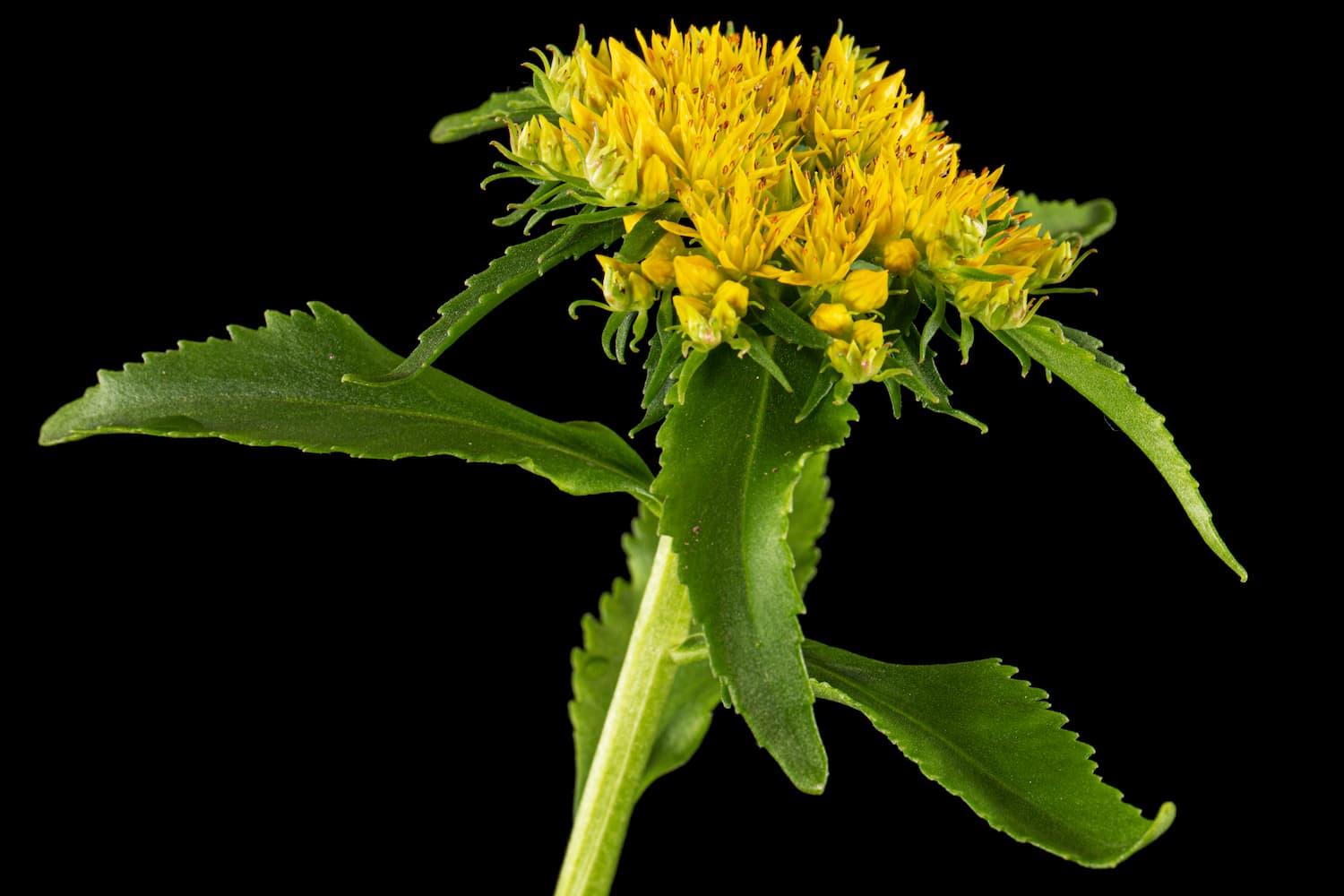Marine algae: properties, contraindications, price, where to buy
Marine algae are photosynthesising organisms that mainly inhabit aquatic areas. Some types of them can support your body.


Learn more about our editorial process
.

Learn more about our editorial process
.

Learn more about our editorial process
.

Learn more about our editorial process
.
Why you can trust us
Articles on Natu.Care are written based on scientific research, data from government websites and other reliable sources. The texts are written in cooperation with doctors, nutritionists and other health and beauty experts. Articles are reviewed before publication and during significant updates.
.Learn more about our editorial process
.Information about advertisements
Content on Natu.Care may contain links to products from the sale of which we may receive a commission. When creating content, we adhere to high editorial standards and take care to be objective about the products discussed. The presence of affiliate links is not dictated by our partners, and we select the products we review ourselves completely independently.
.Learn more about our terms and Conditions
.Green, slimy and... can provide vitamins? That's right. Although algae do not look quite so pleasant at first glance, certain types of algae are particularly valuable for health.
That is why, together with nutritionist Jakub Pągowski, we will tell you about the health-promoting properties of seaweed.
From this article you will learn:
.- What marine algae are and what they contain. .
- What are the properties and uses of marine algae. .
- Whether marine algae are safe and who can supplement with them.
- Whether marine algae are safe and who can supplement with them.

Sprawdź, za co pokochały go tysiące klientek Natu.Care Premium Omega-3ᵀᴳ -15% z kodem BLOG15
Natu.Care Omega-3ᵀᴳ Premium
Natu.Care Omega-3ᵀᴳ Premium dla zdrowia serca, mózgu i odporności. Najlepsza przyswajalność. Optymalna dawka 750 mg. Przebadana przez niezależne laboratorium.
Zobacz więcej
Produkt ma super skład, transparentną etykietę i co dla mnie jest ważne – małe kapsułki do połknięcia. Nie ma też nieprzyjemnego efektu odbijania rybą, który miałam spożywając inne produkty. Widzę znaczną poprawę odporności. Polecam!@Kasia P.
See also:
Marine algae - what is it?
.
Marine algae is a generic name for a variety of species of photosynthesising organisms that mainly inhabit aquatic areas, primarily seas and oceans. Although the designation 'algae' suggests an affinity with plants, they are not formally classified as such. Marine algae represent a very diverse group, including algae, self-living protists, and marine cyanobacteriaand.
They are characterised by an unheard-of diversity in both size (from microscopic single-celled algae to giant marine algae such as kelp) and colour (green, brown, red) .
.
Marine algae are also a key component of marine ecosystems, providing food for many organisms and producing oxygen. Numerous species are also used, for example in the food or cosmetic industries.
What is the composition of algae?
.
Marine algae are a true treasure trove of health, offering a wealth of nutrients with numerous benefits. They contain protein, vitamins, ingredients minerals, fibre and valuable omega-3 fatty acids.
.
|
Nutrient content . |
Why is it important?and |
|
Protein |
Marine algae offer an excellent source of protein, which is a key ingredient for building and repairing body tissues. Some species, such as spirulina, are particularly rich in protein (selected types contain up to 40-60%). |
|
Fibre |
Fiber, of which algae are a rich source, helps maintain the health of the digestive system and is an important ingredient in diets that support weight management, or blood glucose levels. |
|
Vitamins |
Marine algae are also rich in vitamins, including B1, B2, B3, B6, C and E. Furthermore, they are also one of the few non-meat sources of vitamin B12, a deficiency of which is often found in vegans. |
|
Minerals |
Algae are also a source of many valuable minerals such as iodine, magnesium, calcium, iron and zinc. |
|
Omega-3 fatty acids . |
Algae are one of the few plant sources of omega-3 acids, which are essential for heart and brain health. |
What are the types of marine algae?
.
Algae are a diverse group of organisms capable of photosynthesis. They are mainly classified by their colour, structure and cell arrangement. Types of algae include primarily blue-green, brown, red and green algae. What are the characteristics ofand?
- Blue-green algae. These prokaryotic organisms, also known as cyanobacteria, are bacteria that exhibit the ability to carry out photosynthesis. They produce oxygen and are responsible for the formation of harmful aquatic blooms that can adversely affect ecosystems.
- Brown algae. These algae are characterised by their large size, which can reach up to several tens of metres in length. The best known of these are the large kelps, which form undersea 'forests', providing habitat for many marine species. Brown algae are also a valuable source of algin, a substance used, among other things, in the food industry.
- Red algae. Many species of these algae are microscopic in size, but some can form large, macroscopic structures. They are an important source of agar and carrageenan, substances used in the food industry as thickening additives. Red algae also play a key role in marine ecosystems, providing a food source for many creatures. .
- Green algae. This is the most diverse group of algae, including both unicellular and multicellular forms. They are known for their adaptability, which allows them to live in a variety of ecosystems, such as freshwater, salt water or even humid land. Green algae are also a valuable source of protein and are used as dietary supplements. .
Marine algae - properties and effects
.
Marine algae are an extremely rich source of nutrients, which translates into many health benefits. Not only do they exhibit nutritional properties, but they also have a variety of therapeutic actions - from supporting the immune system, to improving skin condition, to regulating blood pressure. How exactly do marine algae work?
They support the immune system
.
Marine algae are an exceptional source of nutrients that support immune system health. They are rich in antioxidants, such as vitamin C and vitamin E, which neutralise harmful free radicals.
So their consumption helps protect cells from damage. By reducing oxidative stress, a diet rich in antioxidants can help provide strong immunity and reduce the risk of many diseasesand.
What's more, marine algae is an excellent source of zinc -a mineral crucial to immune function. Zinc is important for the production of new immune cells, improved wound healing and effective repelling of pathogens. In addition, studies have shown that seaweed nectar can stimulate the activity of macrophages, a type of white blood cell that helps fight infectionand.
Improve skin health
.
Marine algae play an important role in promoting skin health. They contain a range of nutrients that are key to its appearance, including antioxidants such as vitamins C and E and beta-carotene, which protect the skin from free radical damage. These antioxidants can help prevent premature skin ageing, reduce wrinkles and maintain skin firmnessand.
Marine algae is a true anti-acne weapon. Thanks to their antimicrobial properties, they help fight acne-causing bacteria, plus the fiber they contain supports digestive health, which is also important for healthy skin .
In addition, marine algae are known to be high in minerals such as copper, zinc and selenium, as well as vitamin C. These are valuable ingredients that are essential for the production of collagen -a protein that provides firmness and hydration to the skin. Regular consumption of seaweed or the use of seaweed-based cosmetics can help improve the health and appearance of the skinand.
Help regulate blood pressure
.
Marine algae are increasingly recognised for their ability to support heart health, including blood pressure regulation. They are a rich source of potassium, a mineral that helps regulate blood pressure by offsetting the negative effects of excessive sodium intake. Potassium also plays a key role in maintaining muscle tone and fluid balance in the bodyand.
Additionally, certain species of marine algae, such as brown alga, contain unique bioactive compounds called fucoidans, which have shown promising results in animal and human studies for lowering blood pressureand.
.
Finally, the fibre content of seaweed further helps to lower blood pressure, improving overall heart health. Although seaweed is not credited with treating hypertension, it can be an important dietary supplement for those struggling with the conditionand.
.
Positive effects on heart function
.
Marine algae are a rich source of omega-3 fatty acids, which are crucial for heart function. Research suggests that omega-3s can help lower 'bad' LDL cholesterol, increase 'good' HDL cholesterol and lower triglycerides, which are strongly linked to heart disease riskand.
The fibre in marine algae helps regulate cholesterol levels in the body. High cholesterol levels can lead to the formation of atherosclerotic plaques, which increase the risk of heart attack and stroke. Fibre can help reduce this likelihood by helping the body 'trap' excess cholesterol and eliminate it from the bodyand.
As you already know, marine algae can also support blood pressure regulation, which is also important for heart health.
.
Promote the function of the digestive system
.
Marine algae are extremely rich in dietary fibre, which regulates intestinal function and improves the digestive process. By increasing its volume, it fills the digestive tract, which contributes to a longer feeling of satiety after a meal. This is particularly helpful on a reduction diet.
The fibre in marine algae stimulates intestinal peristalsis, which leads to more frequent and regular bowel movements and consequently prevents constipation. By taking in enough fibre (approx. 25 g per day), you ensure proper bowel function.
An additional benefit is the prebiotic content of algae. Prebiotics are a type of fibre that serves as 'food' for probiotics, or 'good bacteria' in the gut. Prebiotics from seaweed can help regulate the balance of the gut microbiome, which translates into improved health of the entire digestive systemand.
Use of marine algae
.
Marine algae are used extensively in a variety of fields -from small domestic applications to industrial ones. These endless possibilities are due to their diversity and versatilityand.
- Food and dietary supplements. Marine algae are a rich source of protein, vitamins and minerals. Therefore, they are added to a variety of dishes and also processed into dietary supplements.
- Cosmetic products. Due to their moisturising and nourishing properties, marine algae are widely used in the cosmetic industry. They are an ingredient in many creams, masks and other skincare products.
- Biofuels. Algae are a very good raw material for biofuel production. They contain large amounts of lipids, which are suitable for the production of third-generation biofuels.
- Medicines. Some types of algae have medicinal properties. They can therefore help to regulate blood pressure, improve thyroid function and many other aspects of health.
- Agriculture and fertilisers. Algae are also used in agriculture as organic fertilisers to improve soil structure and nutrient content.
Marine algae in the diet
.
Marine algae have long been a valued dietary ingredient in many cultures, particularly in Asia. Incorporating them into your daily menu can provide a range of health benefits. They are a rich source of many valuable nutrients, including protein, vitamins (especially group B and C), minerals (such as iodine and potassium), fibre, and essential omega fatty acidsand.
Eating algae also provides a natural source of iodine, which is essential for the proper functioning of the thyroid gland. Another important component of seaweed is fibre. It helps to regulate intestinal function, assists with blood glucose control and can contribute to maintaining a healthy body weight. Many seaweeds are also rich in antioxidants, which help prevent free radical damageand.
Finally, it is worth mentioning that marine algae is a balanced nutritional source that can be an excellent addition to a healthy, varied diet. However, as with all types of supplements, it is important to exercise moderation and be aware of potential side effects and contraindications.
Algae in the food industry
.
Genuine marine algae are increasingly being seen in the ingredients of various products in the food industry. They owe their popularity to their wealth of valuable nutrients and the variety of forms and flavours they offer. How to eat marine algae?
- Self-serve snacks. Dried eating algae, especially nori, are often eaten as a healthy snack that is low in calories and rich in a variety of nutrients.
- Sushi and snacks.
- Sushi and other Asian dishes. Algae are a key ingredient in many Asian dishes, including sushi. They are also used to wrap rice or as an ingredient in soups.
- Natural thickeners. Agar, derived from red algae, is a popular substitute for gelatine, used as a gelling agent in vegan and vegetarian products.
- Dietary supplements. You can also buy algae in tablet form or powder (for drinking) as a dietary supplement.
.
- Dairy products and desserts. Algae are also used as stabilisers and thickeners in dairy products such as yoghurt and ice cream.
.
Where to buy marine algae?
.Marine algae can be purchased in many shops. In the form of tablets or liquids, they are most commonly found on online services. In other forms, however, you can also find them in shops such as Lidl or Biedronka. In turn, the price of seaweed depends on its form.
.How are algae used in cosmetics?
.
Marine algae play a key role in the cosmetics industry. They are prized for their richness in nutrients such as vitamins, minerals and antioxidants. Incorporating them into your skincare routine can bring many benefits to your skin. Whatand?
- .
- Hydration. Algae are a natural source of polysaccharides that help to bind water, providing intense hydration and smoothness to the skin.
- Protects against ageing. Algae are rich in antioxidants that help protect the skin from free radical damage and delay the ageing process.
- Purification and detoxification. Algae promote the removal of toxins from the skin's surface, which is why they are a popular ingredient in cleansing masks and scrubs.
- Soothing irritation. Because of their anti-inflammatory and soothing properties, algae are used in products for sensitive and irritated skin.
Contraindications to the use of marine algae
.
Although marine algae are prized for their many health benefits, there are some contraindications to their use. These include individual sensitivities, risk of environmental contamination or potential interactions with medications. How strong the impact of these contraindications will be depends on a number of factors, such as the dose, the method of administration or the health status of the individual.
Contraindications to the use of seaweedand:
.
Thyroid disorders can also affect the functioning of the thyroid gland.
Pregnancy and breastfeeding are not recommended.
|
Contraindication . |
Explanation . |
|
Allergy |
Although rare, allergies to marine algae can occur and manifest themselves with a variety of symptoms, ranging from mild (e.g. rash, itching) to severe (e.g. difficulty breathing, anaphylaxis). |
|
Thyroid disorders . |
Marine algae may contain naturally occurring iodine, which can affect thyroid function. In people with a diagnosis of thyroid disease, an excess or deficiency of iodine can cause health complications. |
|
Problems with blood clotting |
Marine algae can affect the blood's ability to clot. Therefore, people with disorders of this process or those taking anticoagulants should exercise special caution. |
|
Pregnancy and breastfeeding |
The safety of consuming marine algae during pregnancy and lactation is not adequately documented. Therefore, it is advisable to consult your doctor before starting algae supplementation during these specific periods. |
Can marine algae cause side effects?
.
Yes, like other supplements and nutrients, marine algae can cause unpleasant side effects. These are mainly due to an individual body reaction, potential product contamination or consumption of algae in excessive quantitiesand.
- Gastrointestinal disorders. Marine algae may cause stomach discomfort, bloating, nausea or diarrhoea, especially after consuming large amounts. .
- Allergic reactions. Although rare, allergic reactions to marine algae are also possible. Symptoms of these can include itching, rash, swelling or difficulty breathing.
- Thyroid problems. Algae contain naturally occurring iodine, which can affect thyroid disorders, so get regular TSH, FT-3 and FT-4 tests if you take seaweed.
- Heavy metal accumulation. Algae can accumulate heavy metals from the marine environment, leading to potential health risks with long-term consumption.
- Interactions with medications. Marine algae may react with some medications, including anticoagulants, blood pressure lowering and sugar regulating agents. .
See also:
- . .
- . .
- . .
- .
- .
- .
- .
- . .
- .
- .
Summary
.
- Marine algae is the general name for the various species of photosynthesising organisms that inhabit aquatic areas, mainly the seas and oceans.
- Marine algae show great diversity in size and colour - they range from microscopic unicellular organisms to giant species such as kelp.
- Marine algae are a rich source of nutrients.
- Algae are a rich source of protein, vitamins, minerals, fibre and valuable fatty acids that can provide health benefits. .
- Marine algae are used extensively in a variety of fields, such as the food industry, cosmetic industry and science and medicine.
- They play an important role in promoting skin health, supporting the immune system, regulating blood pressure, improving the heart and digestive system.
- Despite the many benefits of marine algae, they can cause unpleasant side effects in some people, such as gastrointestinal disorders, allergic reactions, thyroid problems, heavy metal accumulations or interactions with certain medications.
FAQ
.Are algae vegan?
.Yes, marine algae are one of the few plant-based sources of many important nutrients, such as omega-3 acids and iodine, making them an excellent addition to a vegan diet. They are also a good way to provide yourself with vitamin B12.
Are all algae safe to consume?
.Not all species of algae are safe to eat. Some may be toxic to humans or contain heavy metals, for example. Therefore, before consuming them, make sure they come from a reliable supplier and that they are intended for human consumption. Also always follow the recommended portions and preparation instructions.
Can marine algae be used as a medicine?
.Although marine algae have many advantages that are potential health benefits, they should not be used as a substitute for medication prescribed by a doctor. Algae can be used as a dietary supplement, but they are not a medicine. Therefore, before adding algae to a treatment regimen, consult your doctor to understand the potential benefits and risks.
Can I eat marine algae every day?
.Marine algae are usually safe to consume daily, as long as they are taken in moderate amounts. However, they do have high levels of iodine, which can lead to thyroid problems in some people, especially when consumed in large quantities.
Are algae a good source of protein?
.Marine algae are a fairly good source of protein. However, its content varies from species to species. Some types, such as spirulina, are particularly rich in protein, while others may contain slightly less.
What is the environmental impact of algae?
.Marine algae play a key role in marine ecosystems, providing food for many marine organisms, producing oxygen and may even help reduce the greenhouse effect by sequestering carbon dioxide. They are also a potentially sustainable source of raw materials such as biofuels.
Can marine algae help with weight loss?
.Marine algae is a source of dietary fibre, which adds bulk to the diet and contributes to feelings of satiety, which can help with weight management. However, there is no scientific evidence to suggest that marine algae alone leads to excess weight loss. Their use should only be part of a balanced diet and healthy lifestyle.
.
Resources
.See all
.El Gamal, A. A. (2010). Biological importance of marine algae. Saudi Pharmaceutical Journal: SPJ: The Official Publication of the Saudi Pharmaceutical Society, 18(1), 1-25. https://doi.org/10.1016/j.jsps.2009.12.001
Francezon, N., Tremblay, A., Mouget, J.-L., Pasetto, P., & Beaulieu, L. (2021). Algae as a Source of Natural Flavors in Innovative Foods. Journal of Agricultural and Food Chemistry, 69(40), 11753-11772. https://doi.org/10.1021/acs.jafc.1c04409
Lee, S.-M., & Ryu, C.-M. (2021). Algae as New Kids in the Beneficial Plant Microbiome. Frontiers in Plant Science, 12, 599742. https://doi.org/10.3389/fpls.2021.599742
Menaa, F., Wijesinghe, U., Thiripuranathar, G., Althobaiti, N. A., Albalawi, A. E., Khan, B. A., & Menaa, B. (2021). Marine Algae-Derived Bioactive Compounds: A New Wave of Nanodrugs? Marine Drugs, 19(9), 484. https://doi.org/10.3390/md19090484
Jarosza, M., Rychlik, E., Stoś, K., & Charzewska, J. (n.d.). Nutrition standards for the Polish population and their application.
.Patel, A. K., Albarico, F. P. J. B., Perumal, P. K., Vadrale, A. P., Nian, C. T., Chau, H. T. B., Anwar, C., Wani, H. M. U. D., Pal, A., Saini, R., Ha, L. H., Senthilkumar, B., Tsang, Y.-S., Chen, C.-W., Dong, C.-D., & Singhania, R. R. (2022). Algae as an emerging source of bioactive pigments. Bioresource Technology, 351, 126910. https://doi.org/10.1016/j.biortech.2022.126910
.Raven, J. A., & Giordano, M. (2014). Algae. Current Biology: CB, 24(13), R590-595. https://doi.org/10.1016/j.cub.2014.05.039
Shalaby, E. A. (2011). Algae as promising organisms for environment and health. Plant Signaling & Behavior, 6(9), 1338-1350. https://doi.org/10.4161/psb.6.9.16779
Scieszka, S., & Klewicka, E. (2019). Algae in food: A general review. Critical Reviews in Food Science and Nutrition, 59(21), 3538-3547. https://doi.org/10.1080/10408398.2018.1496319
Wells, M. L., Potin, P., Craigie, J. S., Raven, J. A., Merchant, S. S., Helliwell, K. E., Smith, A. G., Camire, M. E., & Brawley, S. H. (2017a). Algae as nutritional and functional food sources: Revisiting our understanding. Journal of Applied Phycology, 29(2), 949-982. https://doi.org/10.1007/s10811-016-0974-5
Wells, M. L., Potin, P., Craigie, J. S., Raven, J. A., Merchant, S. S., Helliwell, K. E., Smith, A. G., Camire, M. E., & Brawley, S. H. (2017b). Algae as nutritional and functional food sources: Revisiting our understanding. Journal of Applied Phycology, 29(2), 949-982. https://doi.org/10.1007/s10811-016-0974-5
.
Editorials
Meet the team



Ashwagandha affects thyroid hormone levels. Find out if you can use it.

See how mountain pintail can affect your wellbeing.

Check out the opinions of doctors and other professionals about ashwagandha. Also find out what people on the forum think about it.
